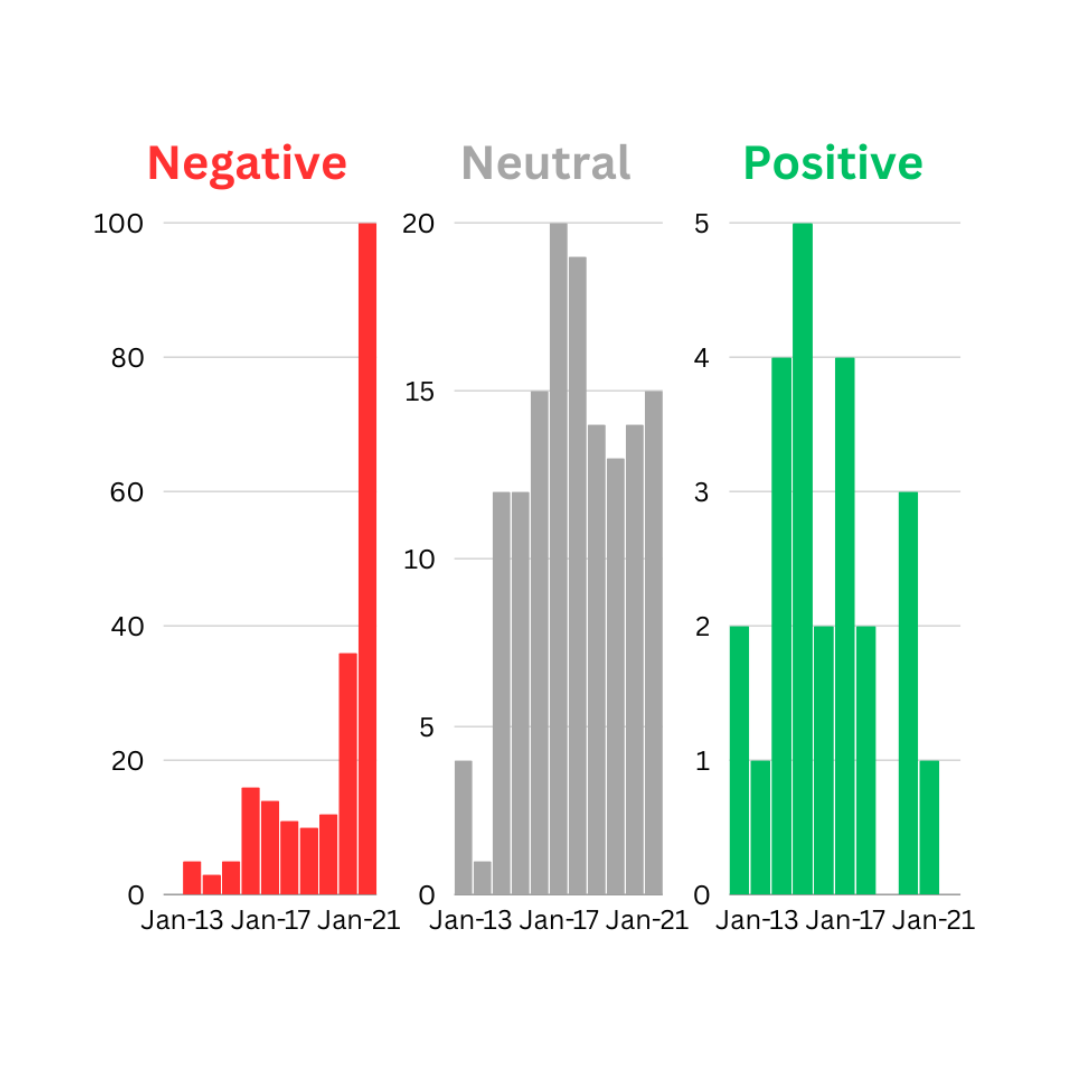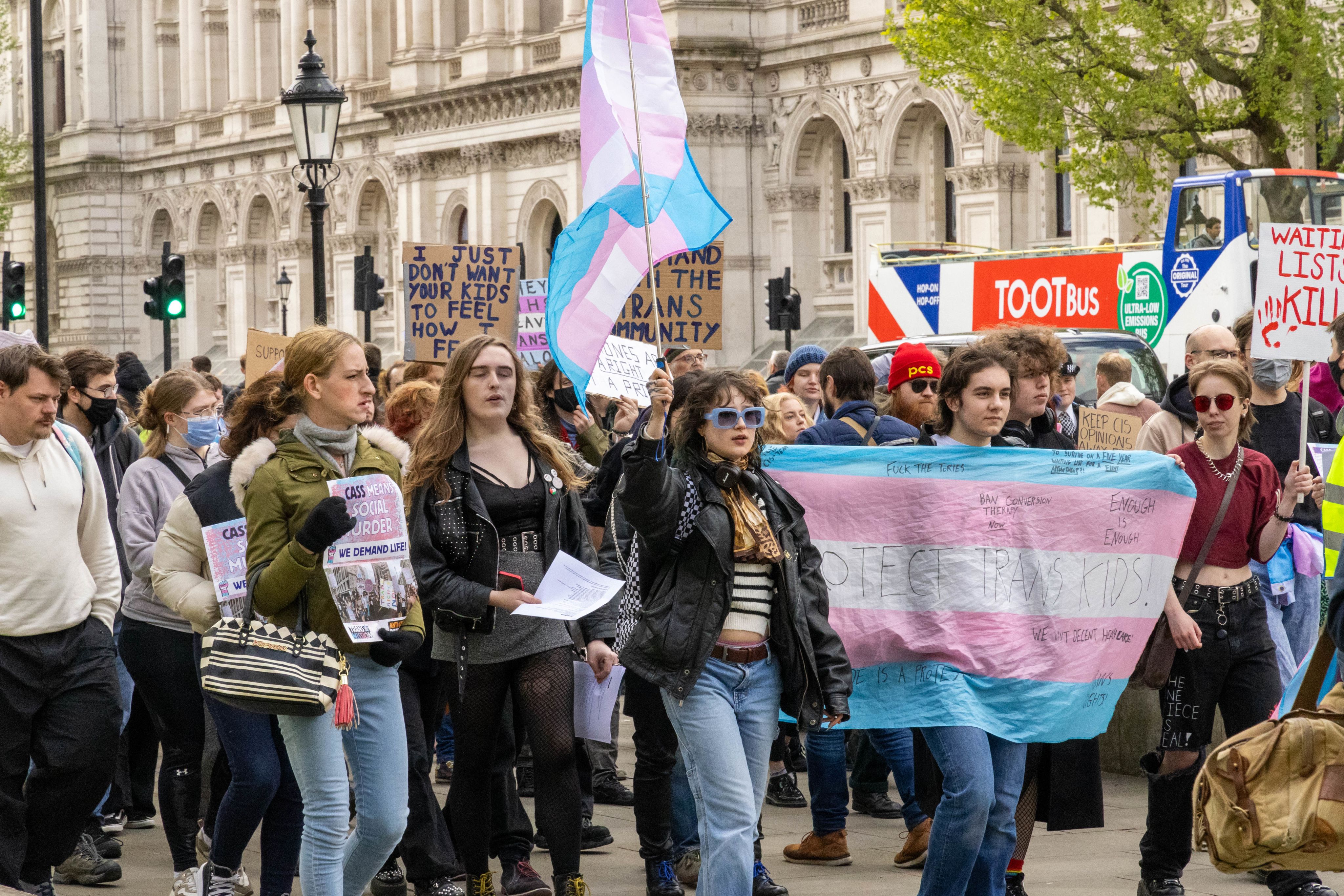Trials and tribulations of transgender news cycles
In the relentless churn of today's media landscape, the distressing news cycle is casting a long shadow over the transgender community.
Words by Aaron Sugg
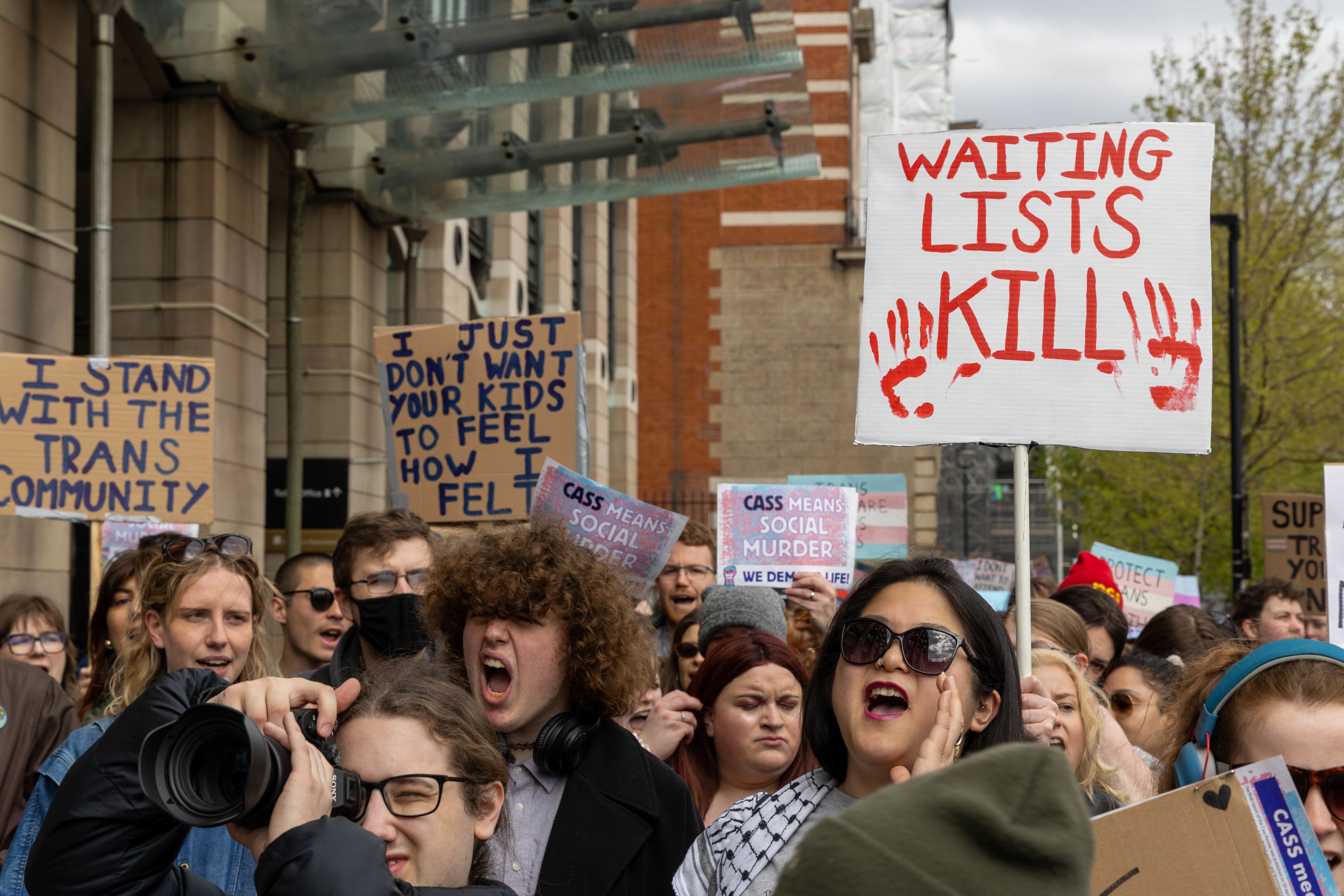
As headlines sensationalize debates over healthcare access, sports participation, and even the very existence of transgender individuals, the psychological toll on this marginalised group deepens. Statistics by Ell Folen show that transgender people feel bombarded by a relentless barrage of distressing news, finding themselves on the frontline of societal discourse.
A stark reality has emerged. Behind the headlines and breaking news alerts lies a community fighting with the repercussions of a media landscape they feel is suffocated by negativity. As debates and political challenges surrounding transgender rights intensify, some individuals feel their identities are relentlessly interrogated, questioned and alienated.
News headlines that invalidate trans people’s experiences or even deny their existence altogether directly harm young people. In a 2022 survey conducted by the UK-based transgender-youth charity Mermaids, they uncovered 30% of trans pupils worried about taking part in P.E. because of negative media stories about trans athletes.
"Trans people deserve to live free from violence, bullying, and isolation. News editors need to start prioritising centering the voices of trans young people who are most impacted by the fallouts of these discussions."


India Willoughby, a transgender broadcaster and journalist shared her first-hand experience of working in the media industry.
India Willoughby who transitioned at 50.
India Willoughby served as a TV reporter at ITV Border, presenting the news in the Northeast and Cumbria before her transition. After a decade in this role, she decided to leave ITV in 2010. She said: “The thought of someone trans being in a newsroom would have been like the series, Life on Mars. Because that is how the trans community was talked about... as a bit of a joke.”
India moved jobs as a press officer with the NHS in a new city, “I was Joanne. I would come back on the weekends and resume being the old me which kept my family and friends happy. I thought I had cracked it.” However, after enduring five years of the mental and emotional strain associated with leading a double life, she made the pivotal decision to come out publicly, which received widespread media attention.
“I do not want to be the only blip in the system.”
Upon her return to ITV, post-transition, India encountered significant challenges faced by a trans woman working within mainstream media, being denied her former on-camera position. She recalled: “They did not take us seriously; their only kind of reference was Drag queens of the age: butch blokes inviting mockery. The difference between now and then is they never used to go looking for trans people to make a sceptical of, whilst now it’s the complete opposite.”
Reflecting, India highlighted a concerning trend of sensationalism and exploitation. Drawing from a 2023 report by Novara Media, which underscores the staggering frequency of articles addressing transgender issues in UK media, she emphasized the need for greater sensitivity and authenticity in journalistic portrayals.
Mail articles on trans issues from 2013 - 2021 (categorised)
Mail articles on trans issues from 2013 - 2021 (categorised) bar chart photo by Aaron Sugg
Mail articles on trans issues from 2013 - 2021 (categorised) bar chart photo by Aaron Sugg
“The trans community is one of the most talked about minorities in the British press, and not a single article is written by a trans person.” India elaborated, “If there is a TV or radio discussion about a trans issue it is nearly always with a studio full of cis-gendered people. One of the reasons why it is so easy to vilify the community is because the public does not get the chance to hear from us.”
In conclusion, India expressed her desire for systemic change within the media landscape, emphasising the need for substantive representation and authentic engagement with the transgender community. “Once their colleagues see who we are and uncover we are just like them, the tone and texture will change instantly.”
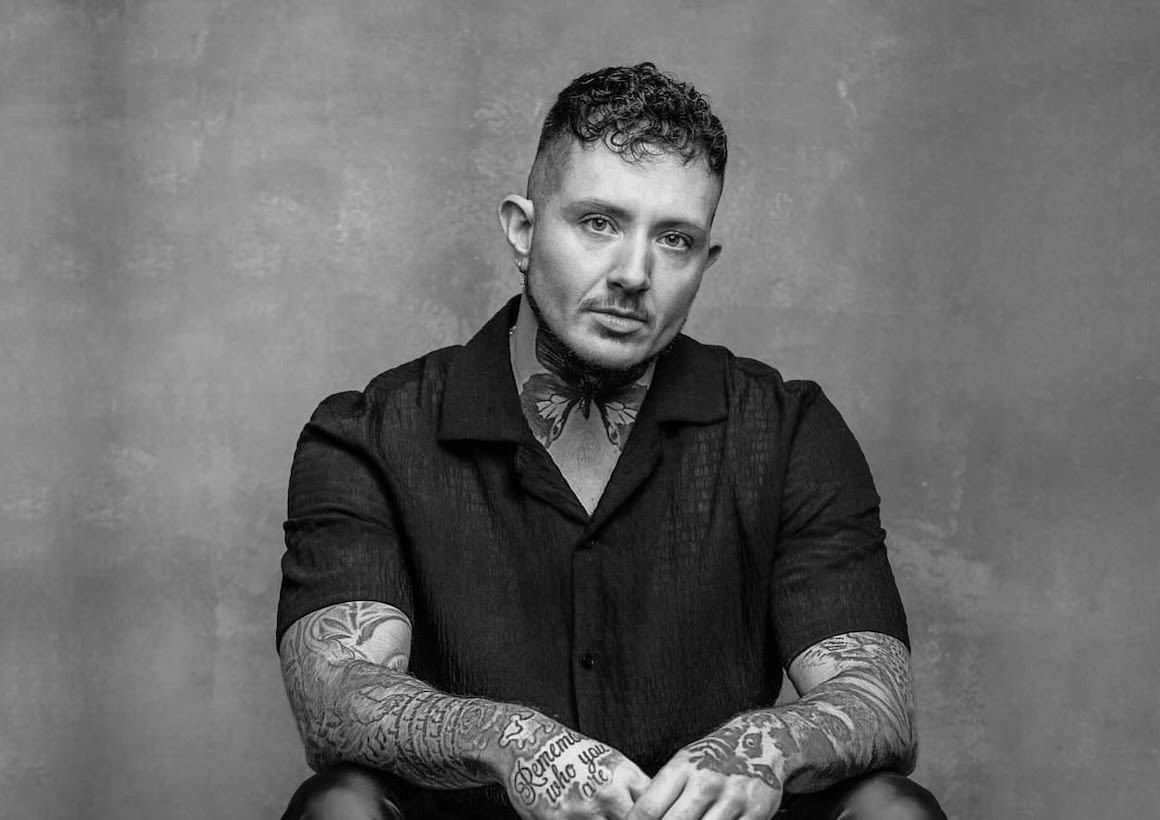
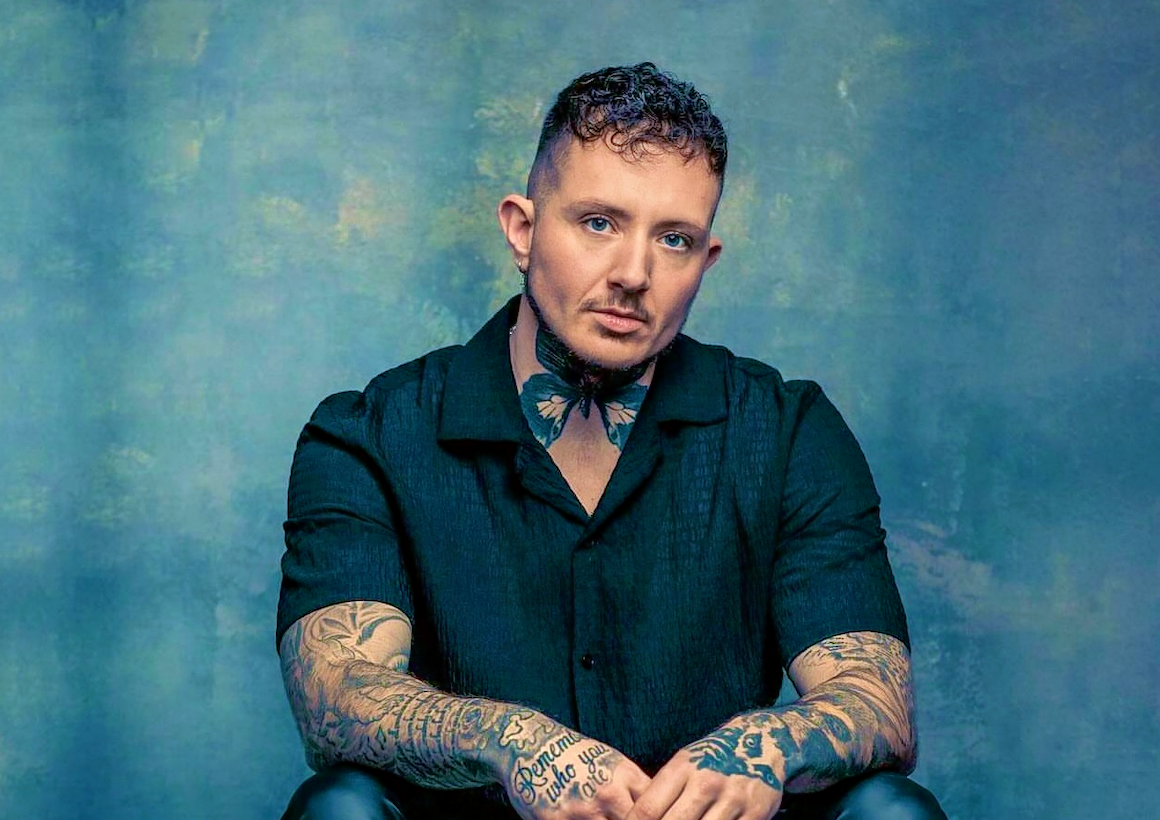
Jaxon Ryder Feeley who transitioned at 21.
Jaxon Ryder Feeley, another transgender TV personality who this year gained recognition as the winner of Channel 4’s Hunted, shared insights into his experience of coming out as a police officer and transitioning to a career in social media advocating for transgender rights.
Like India, when Jaxon was growing up, he felt the trans community was not represented in the media. “Man in a dress,” Jaxon said. He highlighted the clumsy misrepresentation that the news and media have built around the image of a trans person. “That is what spurs me on. I want to be as visible as possible to reassure that one person that their life is worth living, without going through all the trials, tribulations and mistakes.”
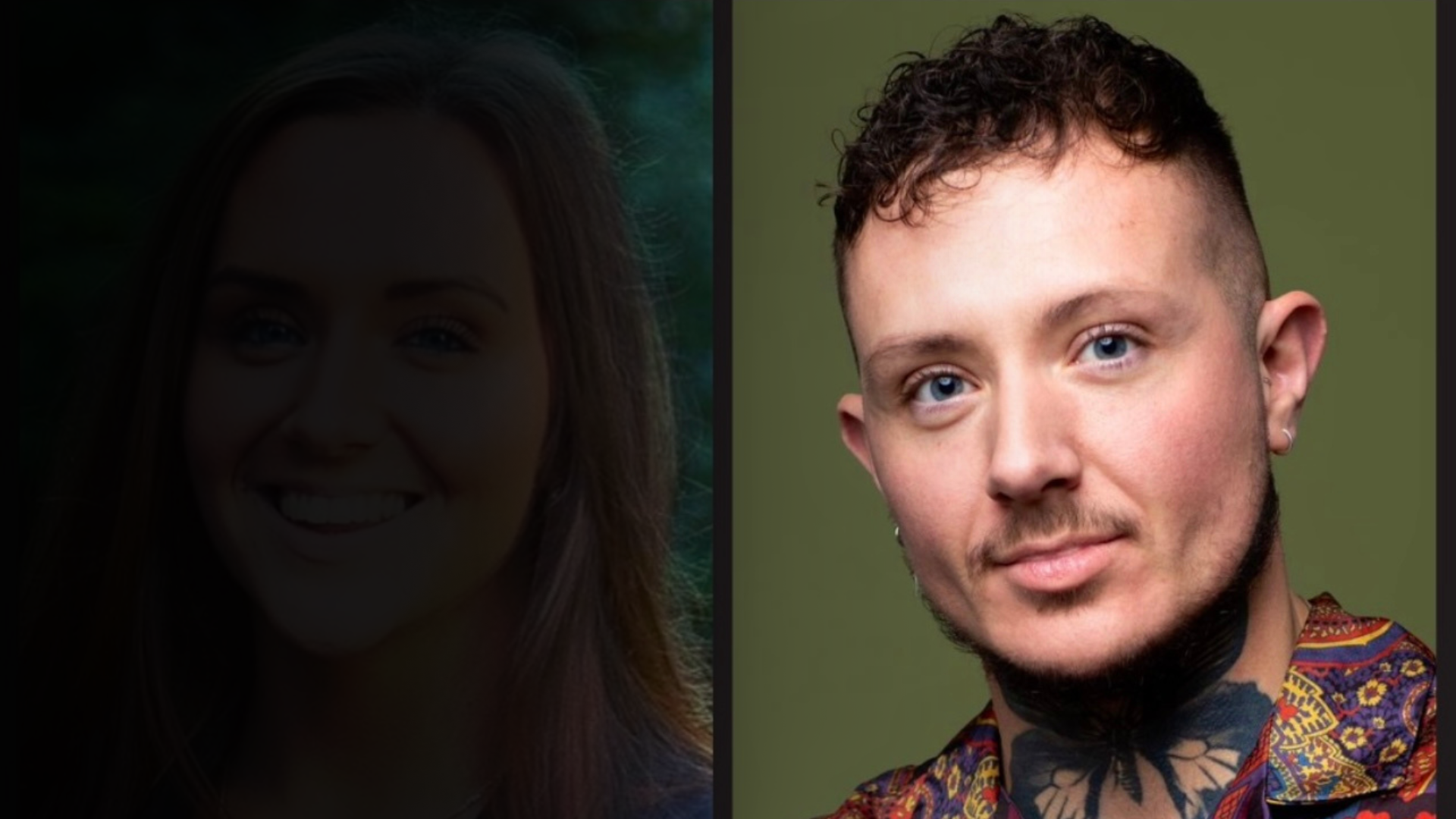
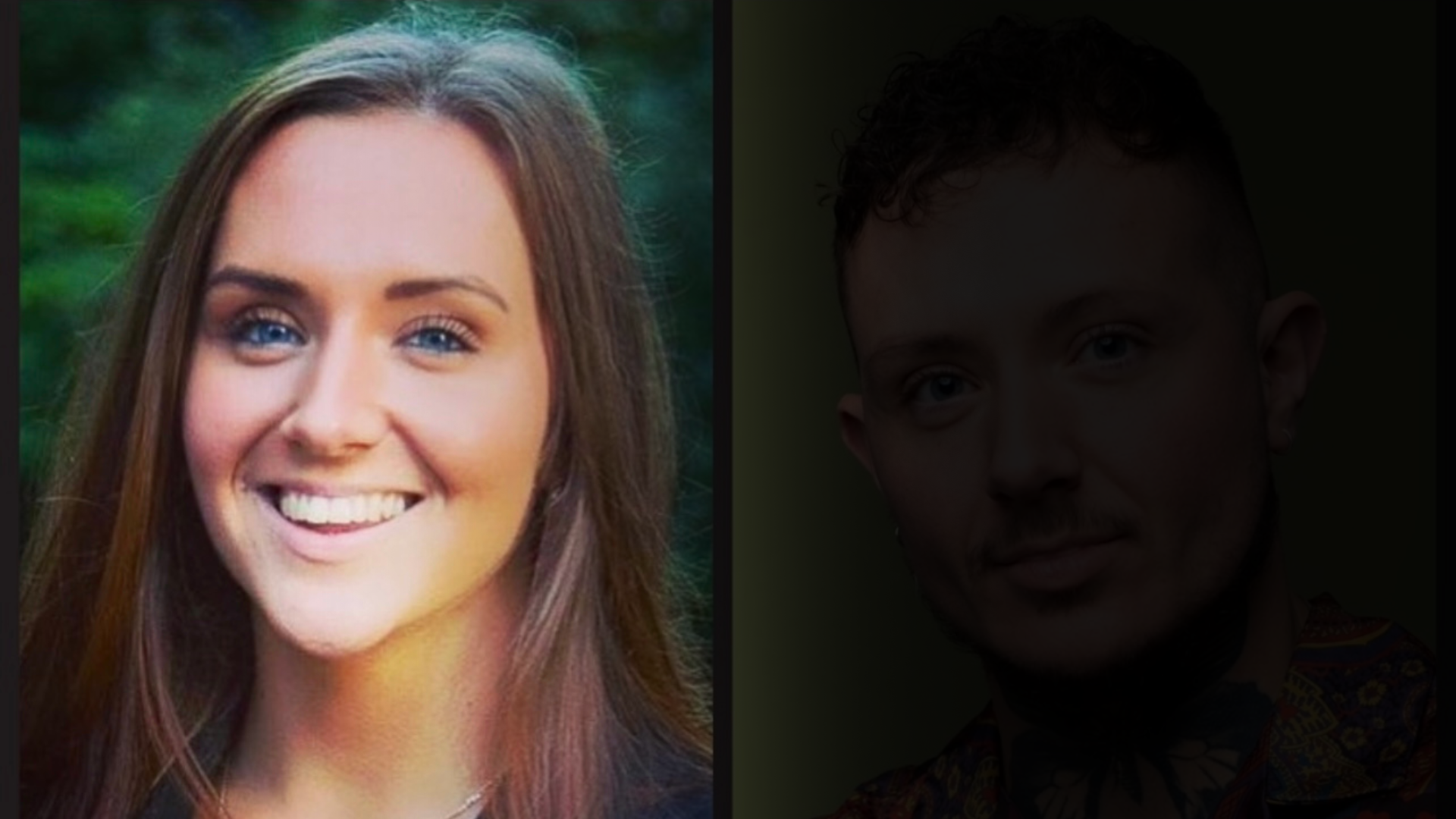
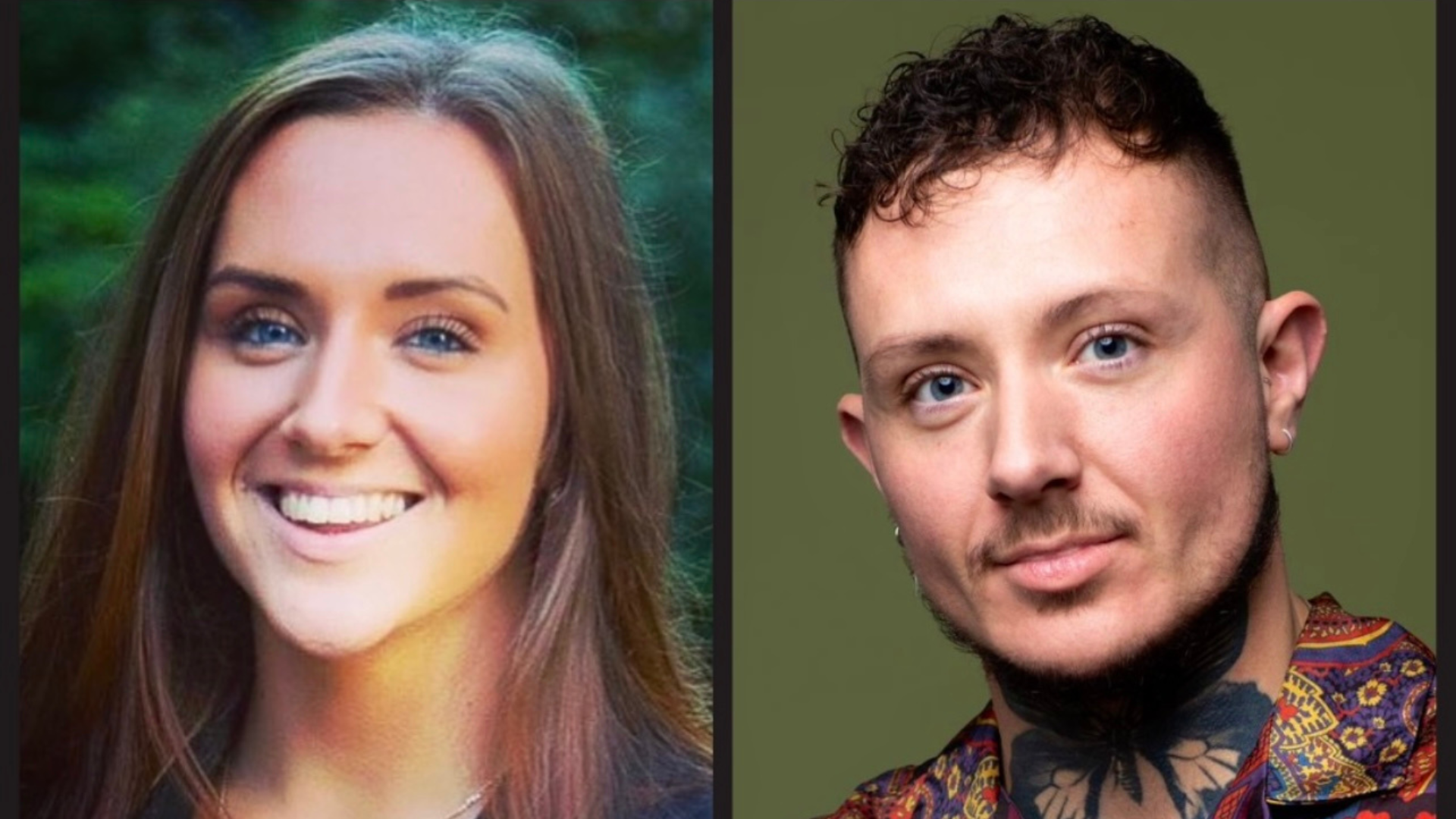
Jaxon initially entered the workforce as a Prison Officer in 2018. However, he has since transitioned into a full-time role as a trans advocate. During his career, Jaxon served three years as a female officer followed by three years as a male officer. He reflected on a pivotal moment when he returned to work with a shaved head, asserting his identity as Mr. Feeley. Through prolonged time with Jaxon the prisoners came to realize that being trans was not an issue, “it is just the universal nature of human struggle and the importance of empathy.” Jaxon said.
Jaxon relayed that most of the news surrounding the transgender community focuses on negative stories, often highlighting extreme cases. He said: “What is often overlooked is the detrimental effect this has on the community, leading many to feel disheartened and even questioning their existence. It makes people in the community go into fight or flight mode. Therefore, some people don’t communicate their feelings effectively, and do jump down people’s throats.” Jaxon pointed out that this situation confines transgender individuals to yet another stereotype. He said firmly: "We are all perceived to be against the rest of the world, which just is not true."
"I really believe in how you have the conversation, we change mind sets one by one, and if you change one you change 100."
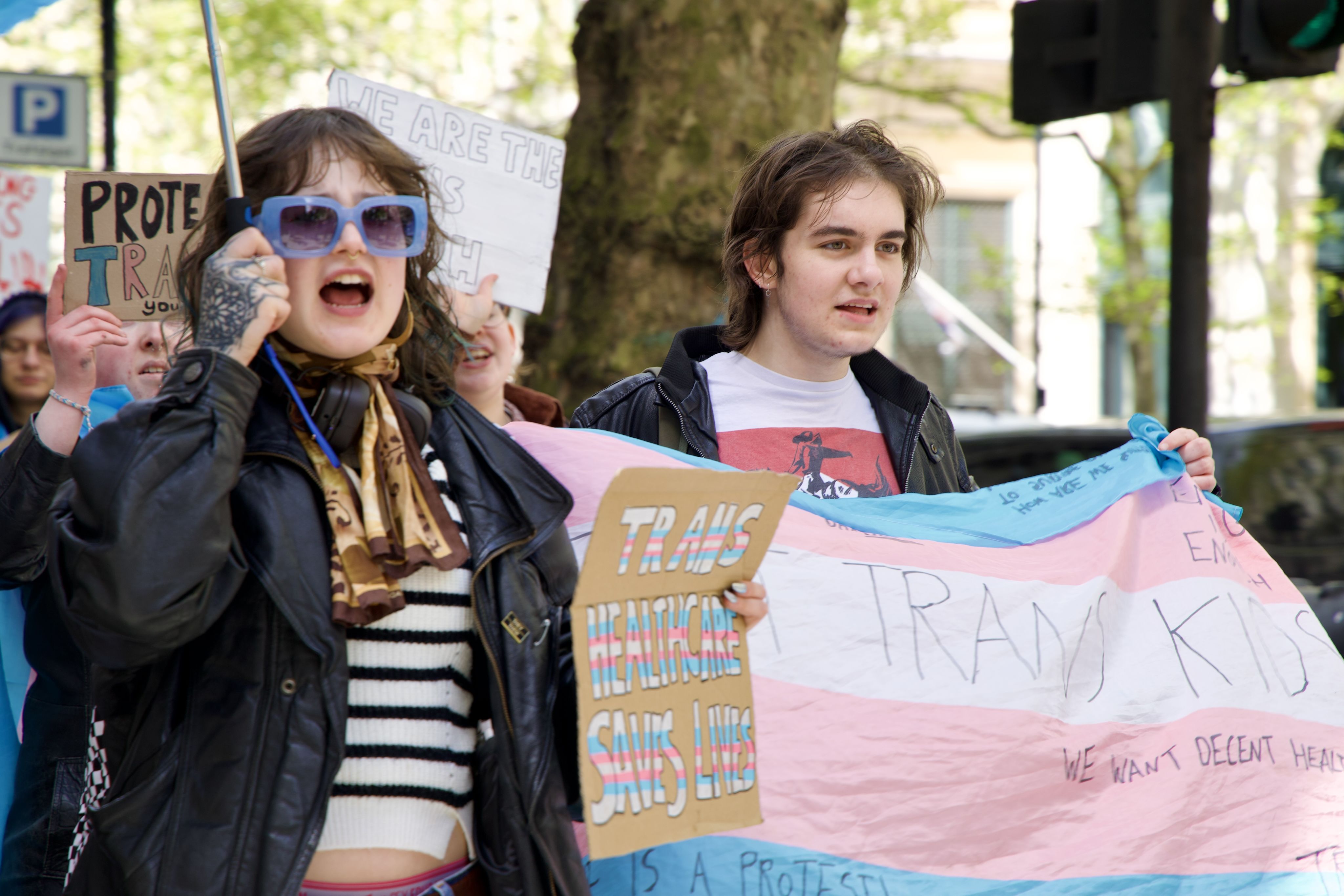
Lee has been on the NHS waiting list for 7 years.
In a powerful display of solidarity, hundreds of transgender rights supporters protested against NHS England confirming under eighteens will no longer be prescribed puberty blockers at gender identity clinics outside Parliament Square on Saturday the 20th of April.
Transgender rights protesters at Parliament Square photo by Aaron Sugg
Transgender rights protesters at Parliament Square photo by Aaron Sugg
The demonstration was organised by Strike Back, a non-violent UK-based transgender activism group. During a conversation with Lee, one of the Co-founders (who, for safety reasons, opted not to disclose his full name), he expressed profound frustration: “I feel as if I'm never able to escape the negative news stories and nobody seems interested in hearing an actual trans person give their perspective.” Lee cited a recent instance on a BBC Radio program featuring David Bell, who dismissed being transgender as an "ideology," with no opposing viewpoints presented. “It creates the impression that nobody cares about our welfare, that society would prefer if we simply ceased to exist”.
Transgender rights protesters gathered around Parliament Square protesting against the ban on puberty blockers for under 18s photo by Aaron Sugg
Transgender rights protesters gathered around Parliament Square protesting against the ban on puberty blockers for under 18s photo by Aaron Sugg
Lee emphasised media sensationalism surrounding transgender issues, including debates over healthcare access, the exclusion of transgender women in sports, and the controversies involving JK Rowling. He referenced the case of Glenique Frank, a transgender woman, whose participation in a major London race last April generated significant media scrutiny, despite her ranking at 6,160th place. Additionally, Lee revisited the story of Brianna Ghey, whose murder prompted the Times to amend their report to remove the word “girl” and use Brianna’s deadname. “Even in death, it is deemed acceptable to dehumanise and disrespect transgender individuals,” Lee concluded with a heavy heart.
Organisations like Mermaids stand ready to offer support: “For those young people who are struggling with the hostility of the UK news cycle, we are here for you, please contact our helpline team Monday - Friday, 9 am-9 pm.”




